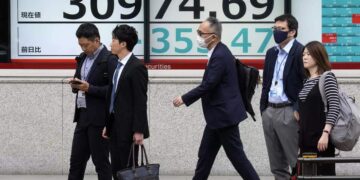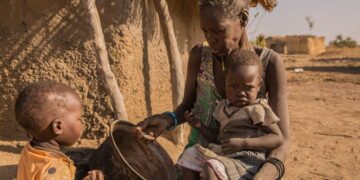Title: Advancing Sustainability: Highlights from the 16th Session of the Inter-agency and Expert Group on SDG Indicators
In an era marked by pressing environmental, social, and economic crises, the 16th session of the Inter-agency and Expert Group on Sustainable Development Goal (SDG) Indicators convened this week under the auspices of the United Nations. This pivotal meeting united a broad spectrum of experts and stakeholders dedicated to tracking progress toward achieving the 17 SDGs established in 2015—goals that tackle critical issues such as poverty alleviation, climate action, gender equality, and reducing inequalities worldwide. As countries intensify their efforts to meet these ambitious targets by 2030, this gathering underscored global solidarity and shared accountability in steering humanity toward a sustainable future. Central themes included refining indicator methodologies, expanding data accessibility across all nations regardless of development status, and fostering inclusive participation in monitoring frameworks. The outcomes reaffirm that precise measurement remains indispensable for driving impactful change.
Major Insights from the 16th Inter-agency Expert Group Meeting on SDG Indicators
The recent assembly delivered crucial guidance aimed at enhancing how global progress on SDGs is monitored. A primary focus was placed on standardizing data collection techniques internationally to ensure consistency and comparability across countries. Participants emphasized integrating cutting-edge technologies to elevate both data accuracy and availability while maintaining inclusivity so that marginalized populations are adequately represented within reporting mechanisms.
Moreover, discussions addressed emerging obstacles such as disruptions caused by conflicts or natural disasters impacting reliable data gathering. To confront these challenges head-on, delegates agreed upon establishing a specialized task force tasked with bridging information gaps particularly prevalent in fragile contexts like war-torn or disaster-affected regions.
The meeting concluded with an urgent appeal for nations to expedite development of national indicator systems aligned with global standards—strengthening coherence between local realities and international benchmarks.
| Key Outcome | Description |
|---|---|
| Data Standardization | Promoted uniform methodologies globally for reliable reporting. |
| Technology Adoption | Encouraged leveraging innovative tools for enhanced data collection. |
| Inclusive Reporting Focus | Aimed at incorporating voices from underserved communities into metrics. |
| Create Task Force for Data Gaps | Dedicating resources to improve statistics in conflict/disaster zones. |
Innovative Data-Gathering Methods Transforming SDG Monitoring Efforts
As highlighted during this session, traditional approaches often fall short when capturing complex sustainability dynamics; thus innovation is key. Recent advancements demonstrate how technology combined with community engagement can revolutionize real-time data acquisition:
- Mobile Technology Utilization: Deploying smartphones and tablets enables field agents to input live updates directly into databases—streamlining verification processes.
- Crowdsourced Data Collection: Empowering local populations through participatory platforms ensures diverse perspectives enrich datasets beyond official channels.
- Aerial Remote Sensing: Satellite imagery alongside drone surveillance offers expansive environmental monitoring capabilities critical for tracking land use changes or deforestation trends.
These methods collectively address longstanding limitations related to timeliness, coverage breadth, and inclusiveness.
| Methodology | Main Advantages | Main Challenges |
|---|---|---|
| Mobile Platforms | Instantaneous updates; improved precision | Connectivity issues in isolated locations |
| Crowdsourcing | Enhanced stakeholder involvement; richer insights | Ensuring validity & consistency of contributed information |
| Remote Sensing Technologies | Extensive spatial reach; visual evidence support | Requirement for specialized technical skills |















